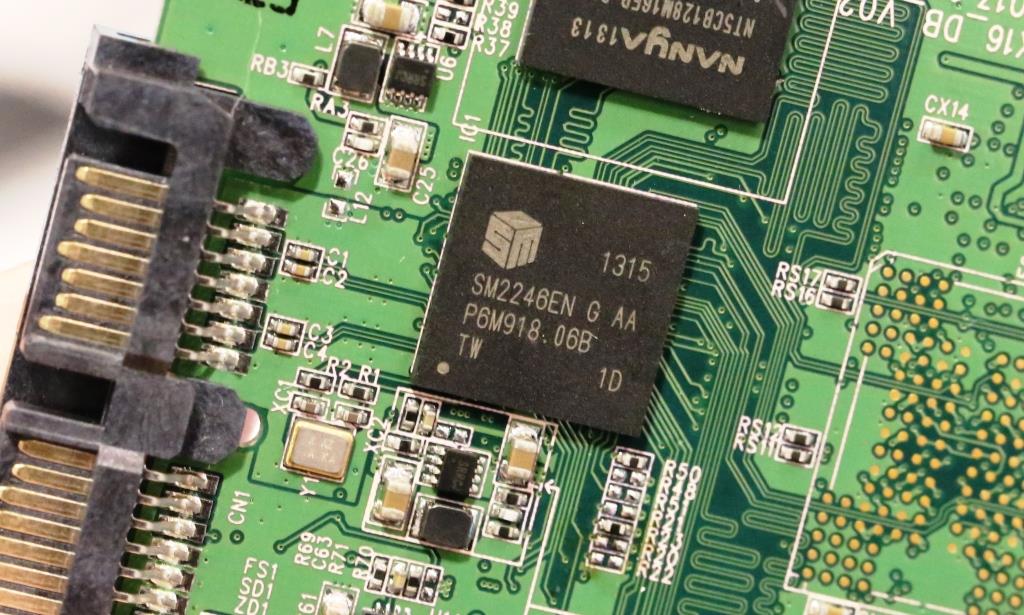So I am a few thousand feet above the ground and one specific manufacturer’s meeting, and subsequent booth visit, is still weighing heavily on my mind. As a trusted tech review resource, remaining independent and impartial plays just as important a role as being able to establish successful relationships with SSD companies and working together in advancing SSD technology as a whole. I am afraid that might not happen with this report.
Let’s start with the hardware. Silicon Motion has manufactured a new SSD controller which they are introducing to the world as a ‘ultra high performance and low power 6Gbps solution; it is the SM2246EN controller shown below. This controller is a 4 channel, 32-Bit, single core RISC-based design on an ARC based architecture and, in the realm of todays SSD controllers, can be listed as a mid-level controller at best, comparable to the present Phison or JMicron offerings.
Looking at performance, Silicon Motion had benchmarks available at their booth, these specifically displaying the results with MLC NAND flash memory. Pay particular attention to the high sequential write reults of both Crystal DiskMark and ATTO.
We really like what we see with the high sequential read results of both and even the write results and random 4K scoring of Crystal DiskMark. In what we see with the Crystal results alone, the future just might look promising for the SM2246EN. The concern we might have with these results is that, while they display very strong high sequential write results with highly incompressible data testing in Crystal, the result is very poor with ATTO (205MB/s) and this is very unusual.
Another positive of our visit was that the SM2246EN is compatible with today’s TLC NAND flash memory and they had benchmarks set up to demonstrate how it fared with Samsungs TLC memory as seen here:
If we look at the preliminary benchmarks using TLC NAND flash memory, we can see why Samsung has elected to strengthen their software and caching of the new EVO series as the write performance with straight memory alone is rather poor; very strong reads and even some nice low 4K writes but the write performance would quantify to what we expected when TLC memory was first spoken of.
Don’t get me wrong though; credit where credit is due and Silicon Motion was the only that we were aware off demonstrating the performance of TLC memory on their controller.
 The SSD Review The Worlds Dedicated SSD Education and Review Resource |
The SSD Review The Worlds Dedicated SSD Education and Review Resource | 


They were brave to benchmark TLC. The tPROG/tBERS requirements on TLC bottleneck the throughput!
They weren’t shooting for performance by choosing TLC… They were shooting for consumer use and EXTREMELY low power.
TLC SSDs have so much capacity, that they will take forever for a consumer to program/erase the maximum number of program/erase cycles. Their goal was clearly to make a cheap ass SSD that took little power and could still run the normal everyday tasks of a consumer hard drive.
Great point.
those are both TLC drives one is a 256gb and the other a 128GB
If you were referring to the benchmark results, I am only passing on what I was told by Silicon Motion.
They use a data length of 4MB on ATTO benchmark. That’s way too small for a SSD. I think that would explain the poor result.